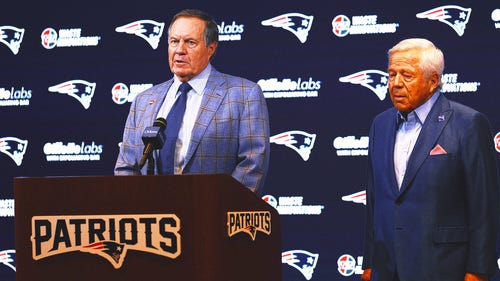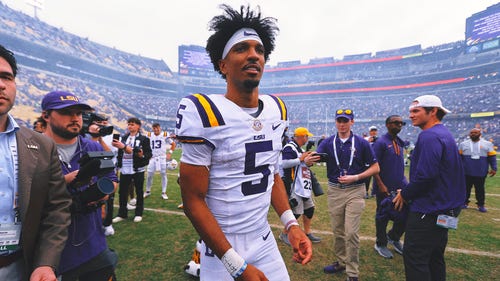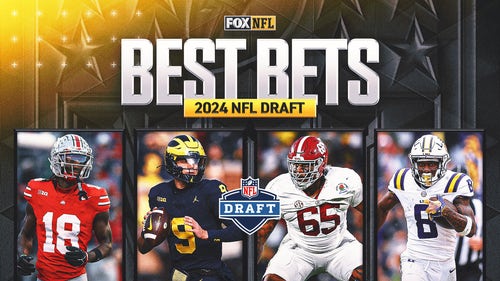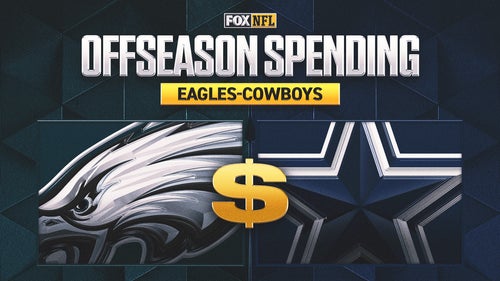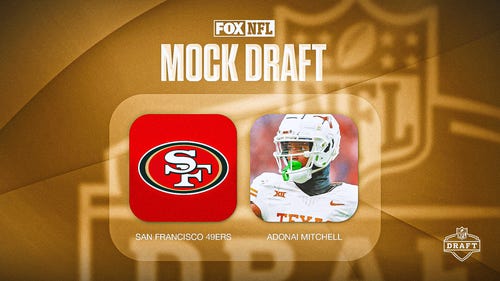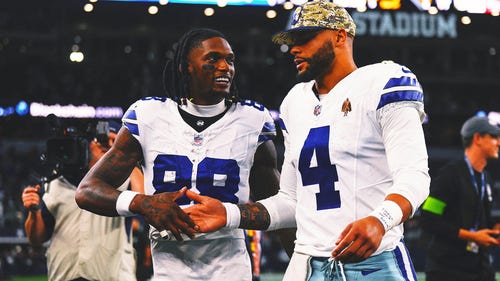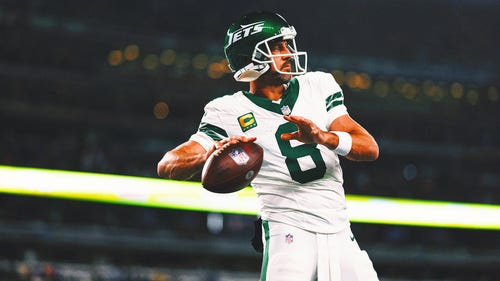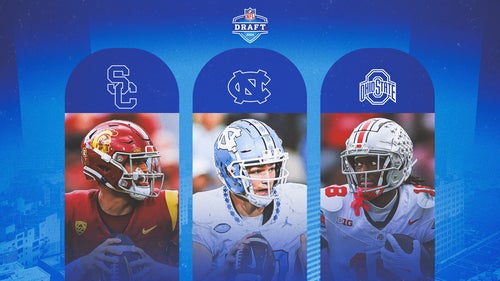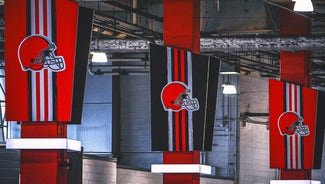
Deacon defined by more than sacks
David “Deacon” Jones, one-quarter of the Los Angeles Rams’ famed “Fearsome Foursome” who died late Monday night at the age of 74, is widely credited with the creation of the phrase “sacking the quarterback.”
But he didn’t just coin the phrase; he executed it.
The prototype of the pass-rushing defensive end, Jones struck fear into the hearts of opposing offensive linemen and quarterbacks and captured the imagination of thousands of American football fans during the sport’s boom period of the 1960s and ’70s.
Sacks didn’t become an official NFL statistic until 1982, eight years after his career ended, but Jones always insisted he set the single-season record. In fact, longtime USA Today writer Jarrett Bell says Jones recorded 26 sacks in 1967, 3-1/2 more than Michael Strahan’s official single-season record of 22-1/2.
According to football historian John Turney, who has used game film, media guides and newspapers to tabulate the numbers, Jones recorded 173-1/2 sacks in his NFL career, good for third all time.
"He was an icon among the icons,” NFL commissioner Roger Goodell said in a statement issued Tuesday. “Even with his fellow Pro Football Hall of Famers, Deacon Jones held a special status. He was a hard-charging football player and the original sack artist who coined the term.
"He is warmly regarded by his peers, not only as one of the greatest players in NFL history but also for his tremendous influence and sense of humor. Deacon Jones will be missed but always remembered. Our heartfelt condolences go out to his wife, Elizabeth, and the entire Jones family."
A 14th-round draft pick by the Los Angeles Rams in 1961 out of Mississippi Valley State, Jones was the first defensive lineman in NFL history to record 100 solo tackles in a season, reaching that mark in 1967. He missed only five games over the course of his storied, 14-season NFL career.
“I wasn't going to be a lawyer, or a doctor or the president of the USA,” Jones once famously said. “I was destined to rush the quarterback.”
He did just that.
Warren Sapp, who was inducted into the Pro Football Hall of Fame earlier this year, said he “patterned my game after him because if you can talk that talk and walk that walk, then you can stand beside Deacon."
Added longtime NFL head coach Dick Vermeil, "I would believe he would have to be considered the No. 1 pass rusher of all time."
Few would argue.
Jones’ mastery on the field can’t be debated — a member of the NFL’s 75-year Anniversary team, eight-time Pro Bowl pick, two-time NFL Defensive Player of the Year — but it’s his presence off the field for which he’ll be remembered most vividly. Long before Joe Namath, Deion Sanders and Strahan captivated America with their charm and bravado, Jones exhibited a larger-than-life persona.
He always had a sharp line — always — and was a fixture in pop culture. Before athlete guest spots on TV were en vogue, Jones made cameo appearances on popular shows, including episodes of "Bewitched," "The Brady Bunch" and "The Odd Couple." He sang with Milton Berle and Bing Crosby on a show called “The Hollywood Palace.” He’d go on to have a musical career, dabble in writing and appear in various advertisements in his retirement years.
Members of the Pro Football Hall of Fame and the media members fortunate enough to attend the ceremonies each August in Canton, Ohio, relished in Jones’ stories. Many of his lines are considered “classics” and are being shared today:
• On getting to the quarterback: "When I got an angle on him with 4.5 speed, he should go to the hospital, and that’s exactly what I tried to do, with no remorse in my heart. I tried to put him in the hospital each time I tackled him. Each time he came over there, I tried to tear his f---ing head off."
• On his aggressive play: “Being a 14th-round draft choice and a salary of $7,500, club ain’t got very much invested in me. So the only chance that I have is to open my mouth. So I threatened people. I told ’em I was going to rip their heads off. I went out there and practiced, and I did that.”
• On the modern ritual of postgame prayer: “When I see guys huddling up after the game, to pray, that’s what scares me about the game. I’m a Baptist, but I’m also a quarterback killer, and I ain’t praying with you. But I will give you 30 seconds to ask your Lord and master to keep me from killing you.”
• On Brett Favre’s 279-game streak: “I get so pissed off every time I hear Brett Favre say he’s played 279 games in a row. I would rather slap my mama than allow a quarterback to play 279 games in a row. Somebody’s supposed to put him on the ground!”
“Every time you met Deacon, he gave you a new favorite memory because he was such a personality,” said Joe Horrigan, vice president of the Pro Football Hall of Fame. “The thing I liked about Deacon most was, he wasn’t just football — he lived and breathed football — but he had so much more to offer.
"Deacon was actually an entertainer, had a musical act that he did — first with the Fearsome Foursome — then he broke off on his own and a had a little nightclub act. He was pretty successful at it. He did a little writing. He did everything. He just enjoyed life. I think that is my favorite memory of him — how much he enjoyed life, how much he enjoyed people. He was a people person for sure.”
But Jones also was an activist and a survivor. As a student at South Carolina State University in the early 1960s, he was motivated by the news of Rosa Parks’ refusal to give up her seat on a bus and participated in a downtown march through Orangeburg.
A dozen policemen with German shepherds chased the protesters, including Jones. He was blasted with water from hoses and pinned against a chain-link fence. Jones was arrested, along with roughly 350 other African-Americans, and spent the night in jail. Days later, his scholarship was revoked.
He ended up at Mississippi Vocational, now called Mississippi Valley State, but the incident fueled him to live life with a fire inside for the remainder of his life.
"My hate for denial,'' Jones told the Orlando Sentinel in 1998. "My hate for a lack of respect. I saw 5-, 7-, 8-year-old white kids call my father and mother by their first names. White kids were taught not to respect old black people. All that built up, but it kept a perspective on my life. I knew that the only way to defeat it was through violence. If I had lost in the pro ranks, I was ready to go to violence. I was ready to die. Because I had been up against the death thing in Mississippi, so it couldn't get no worse."
After his pro career ended, Jones launched the Deacon Jones Foundation, based in Anaheim Hills, Calif., which provides college expenses for students from the inner cities in return for their going back to their communities for volunteer work.
“The American dream, man, people tell you about that (expletive)," Jones said, “but unless you've got the tools to reach the goal, you ain't never going to experience the American dream. I give my kids every opportunity known to man and then let them decide what they want. I guide them from the womb to the tomb."
Deacon Jones was larger than life. The first of his kind, yes, but also the last of his kind.






































































































































